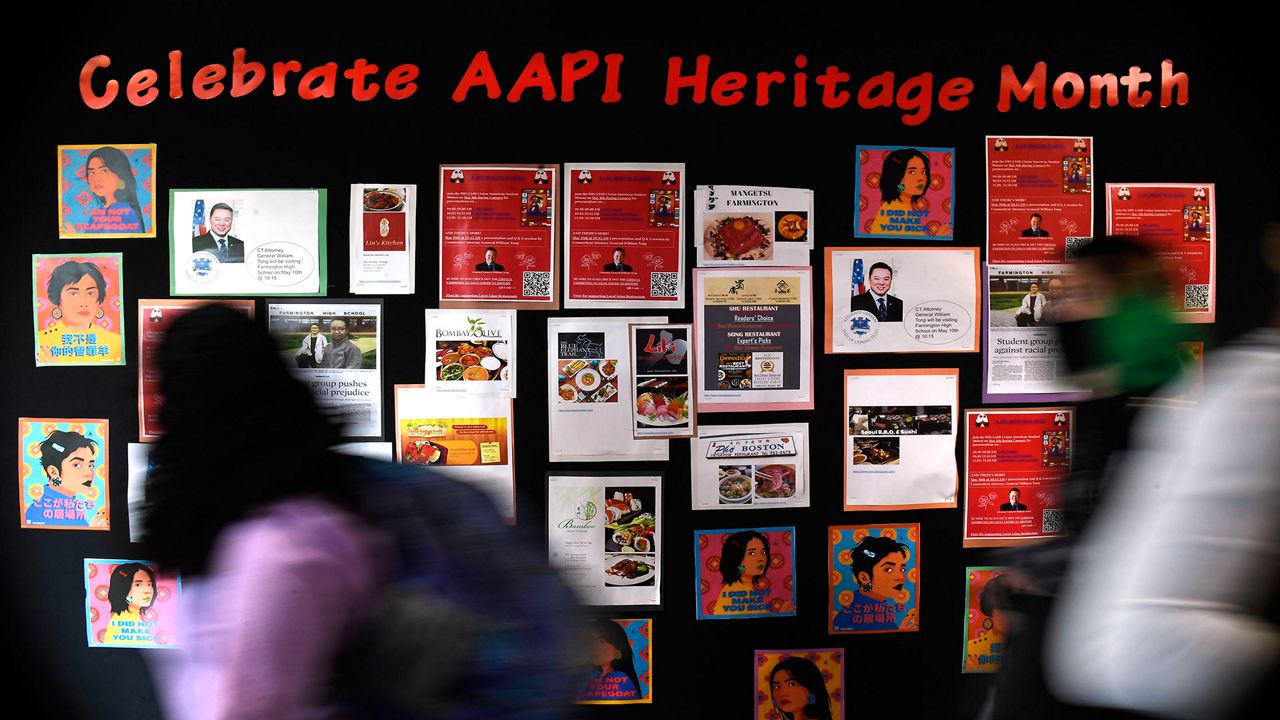CINCINNATI — Jenna Weber recently moved back home to Cincinnati after spending years away at college and later starting her career.
What You Need To Know
- May is Asian American and Pacific Islander Heritage Month
- All month, Cincinnati and cities across the country celebrate the cultures, food and traditions of dozens of AAPI countries
- The AAPI community represents a small population in greater Cincinnati, and as such as struggled to gain representation
- The election of Aftab Pureval as mayor of Cincinnati represents a broader turning point for the local AAPI community
She and her boyfriend, Mike, returned to the Queen City to be surrounded by family and childhood friends, but she’s also optimistic about changes to the city, especially as it relates to the growth of Cincinnati's Asian population. Weber is of Korean ancestry.
New businesses and restaurants are exciting, she said. She’s also happy about cultural changes that have taken place over the last few years, including the growth of a still small but mighty Asian American population in the region.
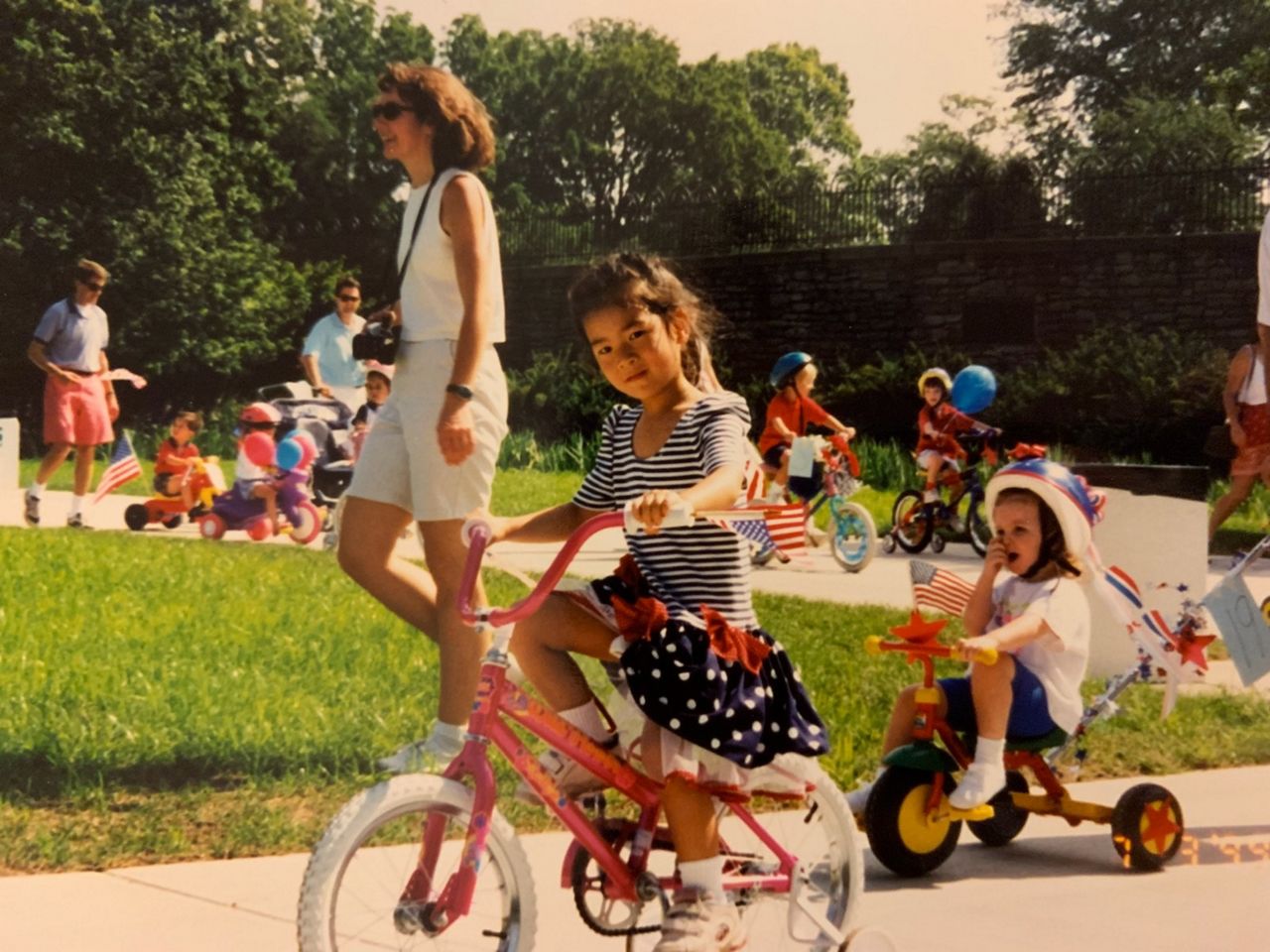
The 27-year-old was eager to take part in Asian Food Fest, one of several local events marking Asian American Pacific Islander (AAPI) Heritage Month in the United States.
That wasn’t always the case growing up.
Weber has fond memories from her childhood; she grew up in a loving household in a mostly affluent suburb on the city’s east side. She had close friends, liked her schools and had the Facebook-worthy vacations many kids only dream about.
While everything was going well, she always felt a bit like an outsider. In some ways, she was.
Weber was born in Taegu, South Korea in 1995. Her parents adopted her when she was 3 months old and brought her to southwest Ohio. A couple years later, the Webers adopted another child from South Korea, this time a boy, and brought him home.
Weber and her brother aren’t related by blood, but growing up, they developed a close bond. Part of the reason was they were the only children in the neighborhood who “looked like them.”
South Koreans in the United States are part of what’s known as the AAPI community, a diverse group of people from dozens of nations in eastern and southeastern Asia.

The AAPI population is the fastest growing minority in the U.S., though they still represent a relatively small part of the overall population in Cincinnati. Individuals from AAPI communities represent 7.2% of the population in Warren County and 4.1% in Butler County, according to data from the 2020 Census.
In Hamilton County, where Cincinnati is located, the group makes up just 3.1% of the population.
Growing up in a predominantly white Cincinnati neighborhood, Weber noticed there wasn’t much of an Asian presence. It existed, she said, but you often had to “go out of your way to seek it out.”
Weber was too young to do so herself, and she feels fortunate to have parents who put in a “lot of effort” to make sure she and her brother had access to Korean heritage and Asian culture.
They’d eat Korean food whenever they could and attend Asian events at the Cincinnati Museum Center.
The Webers joined Korean Focus Cincinnati, a community group for families with children from Korea. She met people who became lifelong friends and even attended a “Korean Culture Camp” in Cleveland.
To help Weber feel more comfortable, her parents took her and her brother to a pediatrician who was Asian and found a Korean babysitter.
“I am extremely lucky that I had parents who curated my experience growing up to make sure I did not feel too isolated in an all-white community,” she said. “Had they not put this effort in, I know I would not have had the same exposure to my culture.”
Still, she said she was often “painfully aware that I was one of few, or maybe the only, Asian person in a room at a lot of the places I went.”
Years-long push for a more diverse Cincinnati
Weber moved away for college in 2013. She started at Ohio University in Athens and transferred to The Ohio State University.
She wanted to find her place as an adopted Asian American, an experience she believed Cincinnati couldn’t provide.
Weber’s journey was not unique, said Felicity Tao, co-founder and chair of the Greater Cincinnati Chinese Cultural Exchange Association.
It wasn’t an easy decision to leave Taos to leave their lives and extended families behind in China, but they hoped to achieve a brighter future for themselves and their children, said Tao, who became an American citizen in 2016.
She works in the corporate world in brand strategy.
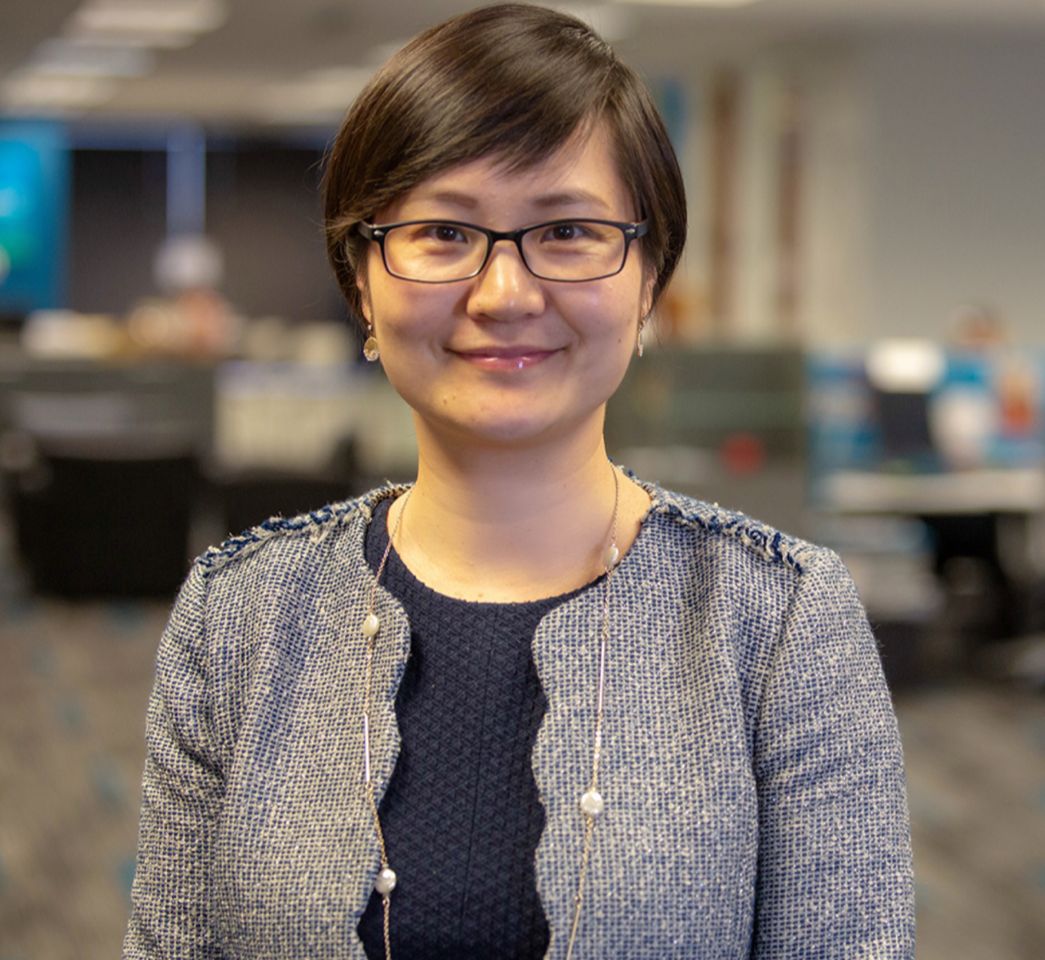
Today, Tao and her husband feel “at home here” and work to strengthen the community for others in their shoes. “We want to be better and do better for our neighborhood,” she said.
It’s a stark contrast from when she first arrived, though. Back then, the Tao family lived in a “less welcoming community,” where their neighbors “avoided eye contact and kids didn’t even play with each other.”
“We felt very isolated and eventually decided to move out of that neighborhood,” she said.
Tao helped create the Greater Cincinnati Chinese Cultural Exchange Association partly to celebrate Asian American cultural heritage, and to improve cross-cultural understanding. They hold regular events focused on education and dialogue, and work to support regional diversity and inclusion.
One of their biggest times of the year is AAPI Heritage Month. They’re one of several AAPI groups hosting events throughout the month of May.
“First and foremost, we are Americans,” Tao said. “But as Asians, we also help enrich the cultural fabric here in this region and nationwide,” she said.
They’re also a key part of the tax base, Tao said — both as employees of businesses and homeowners, but also as business owners.
Asian-owned hotels and restaurants employ 4,010 Cincinnati residents and generate more than $218 million in sales each year, according to data from Cincinnati Compass. The organization brings together dozens of community agencies to help advance the economic and cultural inclusion of immigrants and refugees.
“It is wonderful to see the recent expansion of celebrations of AAPI heritage and the cultural, civic, and economic contributions of AAPI communities across the Cincinnati region,” said Bryan Wright, Cincinnati Compass’ executive director. “We must continue to support AAPI communities, both long-term residents and newcomers, who call the Cincinnati region home and add to the overall cultural and economic vibrancy of the region.”
Food: An entry point to learn about new cultures, traditions
The annual Asian Food Fest in downtown Cincinnati financially benefits those in the AAPI community and it provides exposure.
Tao feels that type of representation is important because it helps familiarize people with Asian cultures, heritages and people. Historically, Asians have been viewed as “perpetual foreigners,” she said, in part because of how they look.
She added Asian Americans are often “scapegoated” for problems in the U.S.—economic woes, national security issues, even disease. That occurred most recently with the COVID-19 pandemic.
“I personally believe there’s institutionalized racism against Asian Americans because, throughout its history, the government has adopted anti-Asian American policies,” Tao said.
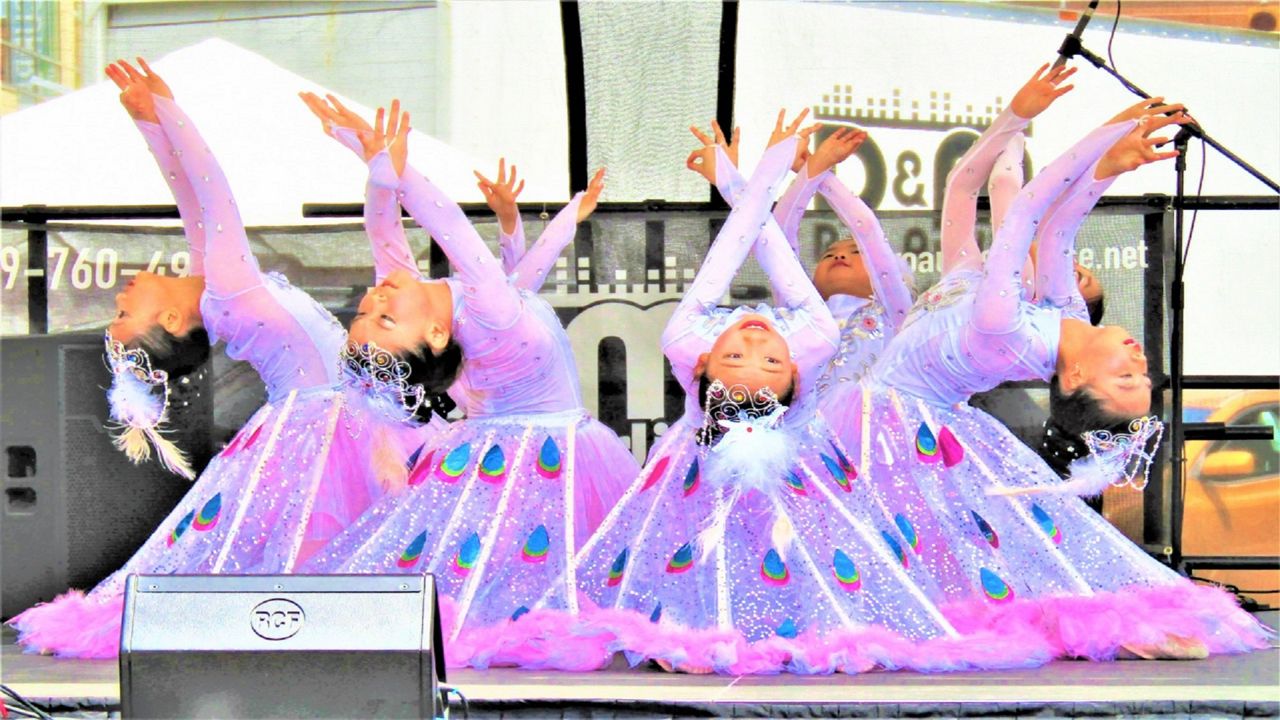
As an example, she cited the 1882 Chinese Exclusion Act and the Page Act of 1875, early efforts to restrict Asian immigration. There were also the Chinese Exclusion Act and internment camps for Japanese Americans during World War II.
The anti-Asian sentiment flared again over the past two years.
Like most restaurants, restrictions related to COVID-19 were challenging for many of the businesses taking part in Asian Food Fest. The pandemic had an uglier impact on many Asian establishments because of cultural insensitivity and racist attacks.
Yvonne Chew, owner of Tea ‘n’ Bowl in the Clifton Heights neighborhood, said her business lost hundreds of dollars in revenue in April 2021 because of a series of fake orders. When she attempted to call back, Chew faced profanity and racist comments.
By Dec. 31, 2021, more than 10,900 hate incidents targeting the AAPI community had been recorded nationwide since the pandemic’s start.
The incidents had many AAPI citizens feeling uneasy about a return to normal. One in three Asian Americans surveyed said they were fearful of being the target of a hate crime, according to Pew Research Center.
That’s why it’s important to hold events like Asian Food Fest, Tao said, to bring the community together and offer each other support.
“It’s really charging,” she added. “I feel like we have a very robust Asian American community coming together in the past couple of years to bring visibility and an awareness of Asian Americans.”
Change is overdue but underway
In the last few years, they have risen to positions of prominence across greater Cincinnati.
Last fall, Aftab Pureval became Cincinnati’s first Asian American mayor. He’s also the first member of the APPI community elected mayor of any major Midwestern city.
“The election … was a very pleasant surprise to the community,” Tao said. “People think of Cincinnati as being a relatively conservative city, but we elected the first Asian American there in the Midwest.”
Pureval’s election will help attract more Asian business talent to the Midwest, she added.
Greater Cincinnati is home to nine Fortune 500 companies and several large research universities.
“Those organizations ‘get it,’” Tao said. “They understand that a celebration of unique cultures and diverse talents isn’t just good for the social aspect of a city, but for the overall well-being of a place.”
Pureval grew up in Beavercreek, Ohio, just outside Dayton. He had a “wonderful upbringing,” he said, but because his parents were first-generation Americans, he didn’t have many mentors who were AAPI.
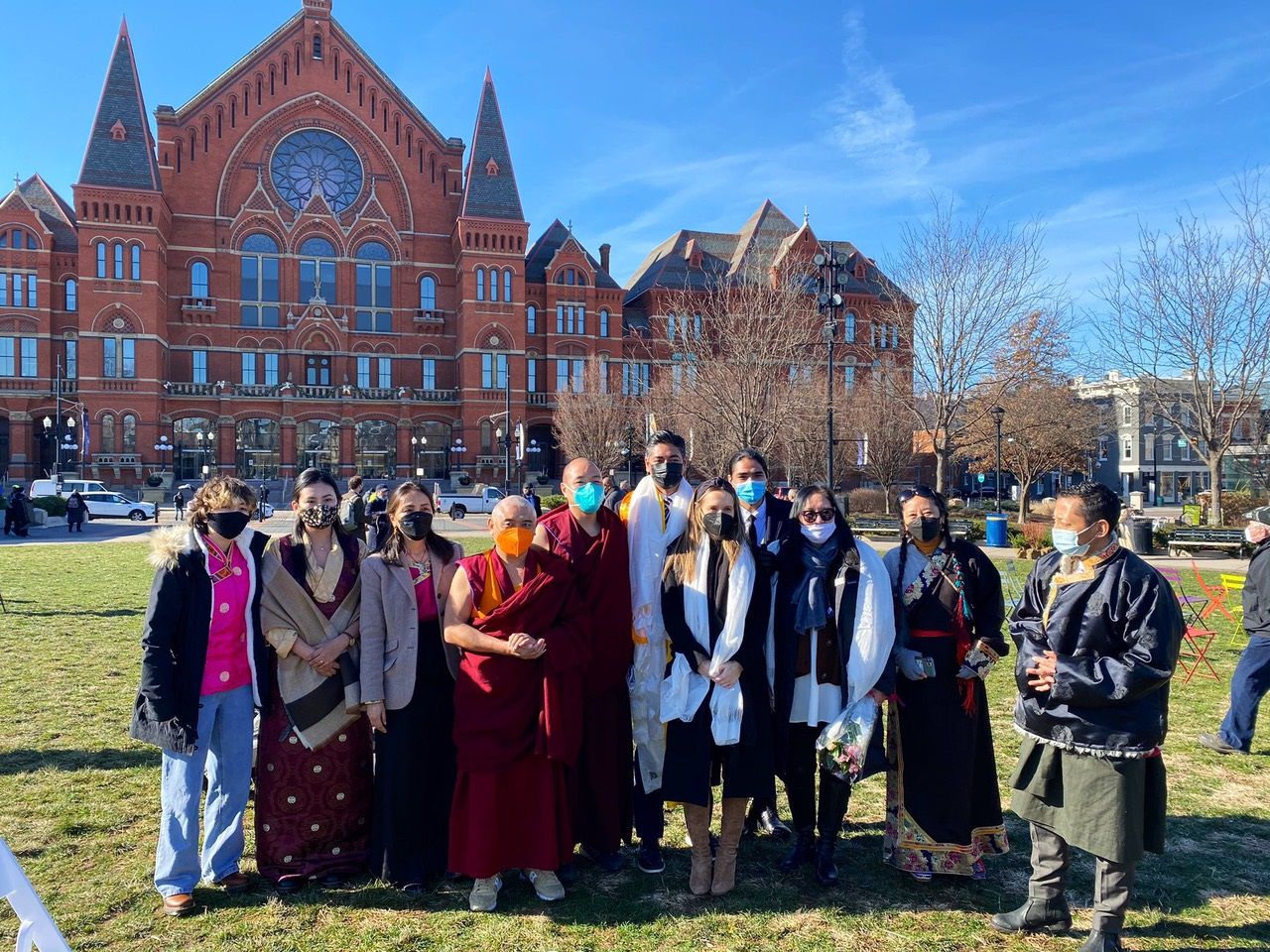
Now, Cincinnati boasts some very high-profile AAPI leaders, including the presidents of both Northern Kentucky University and the University of Cincinnati, the Hamilton County coroner, and the Hamilton County clerk of courts.
Asian Americans are also among the top executives at Procter and Gamble and 84.51°, a data company owned by The Kroger Co.
“That’s incredibly important,” Pureval said. “Now young Asian and South Asian kids can believe that if they work hard, they can achieve their dreams in academics or politics or business.”
Pureval’s election drew national and international attention. A group from Tibet attended his swearing-in ceremony and delivered a personalized letter from the Dalai Lama congratulating him on his historic feat.
Pureval called it “one of the most impactful moments” of his life.
“As the first Asian mayor of Cincinnat—the first Asian mayor of a major Midwestern city—I have a responsibility to not only my city, but to my community,” he said. “That responsibility includes leading by example and leading effectively and with ethics, but also taking every opportunity to make my Cincinnati community, my larger community, proud.”
Pureval earned recognition as one of the most influential Asians and Pacific Islanders in American society and culture by the organization Gold House, which works to promote “changemakers” in the AAPI community. Tech entrepreneurs, movie stars, social activists and other politicians, including recently elected Boston Mayor Michelle Wu, also made the list.
“For our city to be on the minds of business owners, Hollywood stars and philanthropic leaders, it’s only good news for Cincinnati and for the region,” Pureval said.
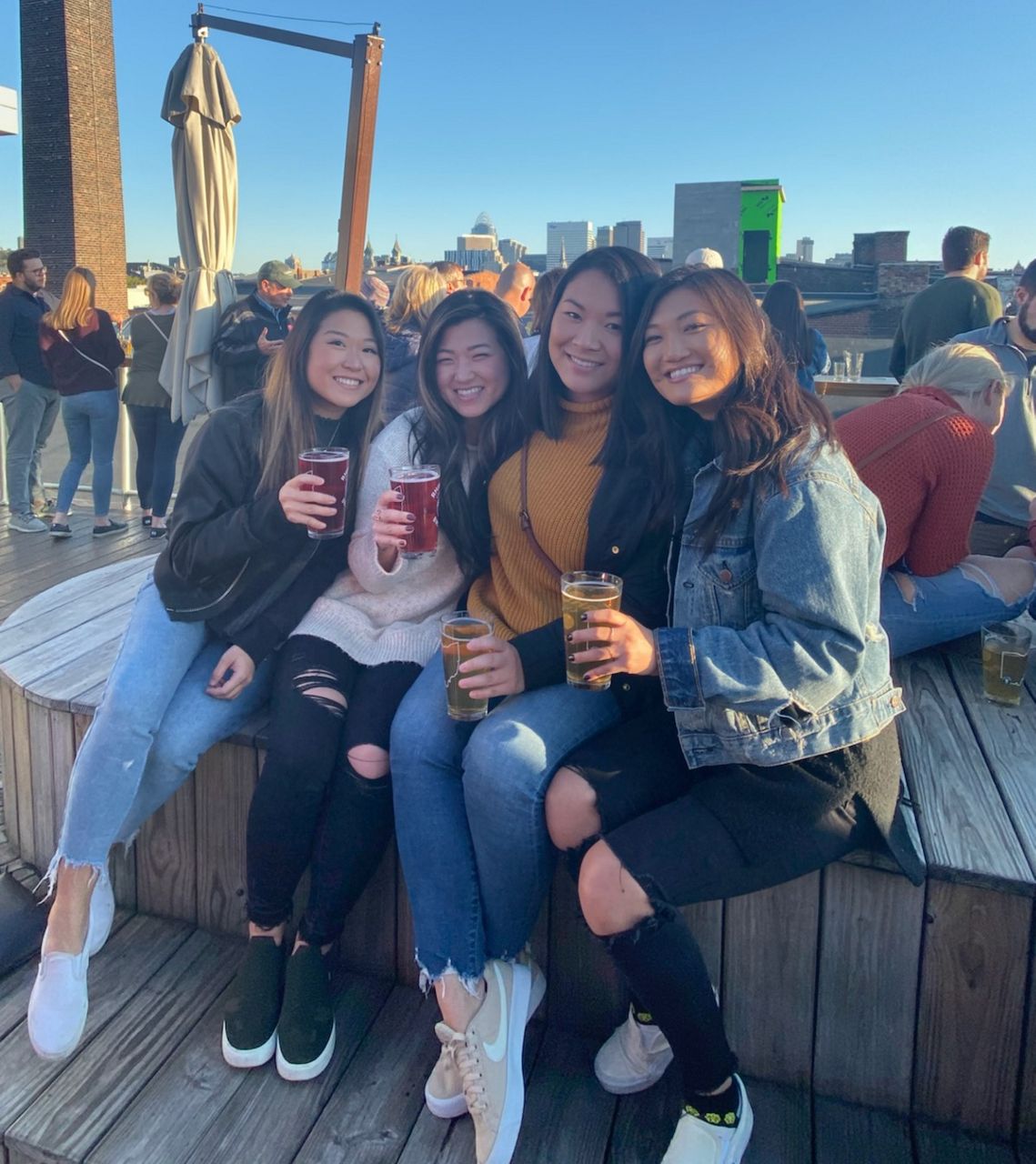
Tao knows people whose children—like non-Asian families—who seek out dreams in coastal cities or places like New York or Chicago or Washington, D.C. But seeing the opportunities and cultural awareness may help bring back some of that talent.
“It’s that combination of opportunities, acceptance and all the good things about living in the Midwest that I think will bring people back.”
Weber is one of them.
Since moving back, she’s noticed more Asian restaurants, including a couple newer Korean places in Oakley— SushiNati and Stone Bowl.
“It was amazing coming home to that type of energy and publicity for the Asian community here. She said she knew a lot of the energy had to do with it being AAPI Heritage Month, “which is disappointing,” but she feels confident she can “find my place and my people here, especially with the support of Aftab Pureval.”
“His representation is exciting and gives me hope that someone in the local government will openly support the growth of space for Asian culture to exist in Cincinnati,” she said.
Weber looks forward to becoming more involved with AAPI cultural organizations and wants to patronize more Asian-owned businesses in Cincinnati.
She hopes to see the community continue to grow and become more “mainstream” as part of the region’s broader culture.
“Cincinnati has always had an Asian community, and it’s refreshing to finally see a spotlight shone on a lot of the fantastic businesses and groups that exist within it.”
